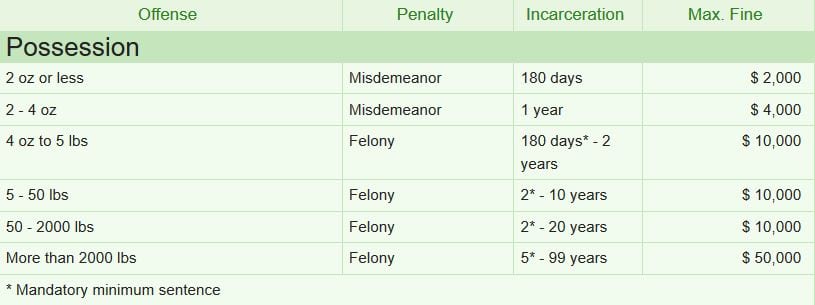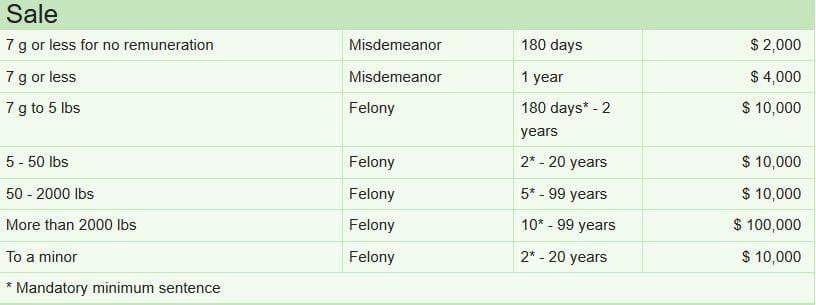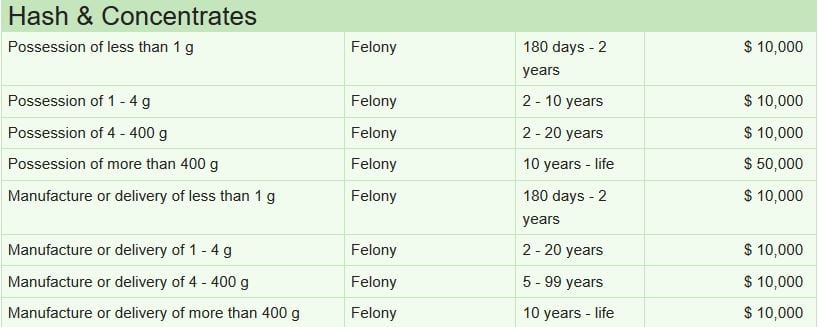Winning a Charge for Marijuana or THC Possession in Texas
The amount of marijuana or THC concentrate in possession may prevent a good outcome in your case, even for a skilled criminal defense lawyer. There is little precedent for edible marijuana cases.
Minimum sentencing can apply. Over 4 oz of marijuana and an automatic 180 days in jail is applied. Whether you have a 4.0, are a student athlete, or a respected high school teacher, the law requires a judge to apply the sentence equally.
In the State of Texas, a drug conviction further leads to a driver’s license suspension of up to six months.
At Chappell, Lanehart & Stangl, we will explore a few areas that can lead to a reduced sentence, diversionary program or reversal of charges:
- How were you stopped by police? Was it while driving?
- Was the drug a THC concentrate (edible) or marijuana?
- Where was the drug found during arrest: in your pocket, your vehicle or on a friend?
- Do you share your vehicle with others?
- Do you have a medical marijuana license in Texas?
- Do you have a clean criminal record?
- Are you a person of good character who is unlikely to commit a crime in the future?




 Tetrahydrocannabinol, abbreviated THC, is one of at least 113 cannabinoids identified in cannabis. THC is the principal psychoactive constituent of cannabis. THC is typically added to food products and consumed.
Tetrahydrocannabinol, abbreviated THC, is one of at least 113 cannabinoids identified in cannabis. THC is the principal psychoactive constituent of cannabis. THC is typically added to food products and consumed.


